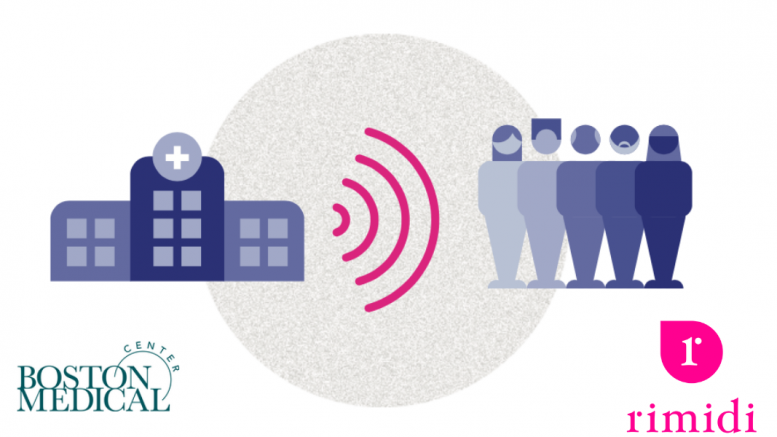The safety-net hospital will leverage Rimidi’s cloud-based software platform to further support providers from screening at-risk populations to risk stratification
Boston Medical Center today announced it has received grant funding from Gilead Sciences as part of its new global grants programs to support investigator-sponsored research in nonalcoholic steatohepatitis (NASH). This three-year project will be led by study principal investigator, Dr. Michelle T. Long, MD, MSc, from Boston Medical Center (BMC) and Boston University School of Medicine (BUSM). Long, an internationally recognized leader in NASH-research, will lead a multidisciplinary team of scientists in an effort to improve care for patients living with nonalcoholic fatty liver disease (NAFLD).
BMC received funding for Gilead’s NASH Models of Care, a program focused on investigating ways to develop efficient and effective care pathways between multidisciplinary providers in the screening, identification, referral and treatment of high-risk NASH patients. The program will leverage the fatty liver disease platform view from Rimidi, a cloud-based software platform that enables personalized management of health conditions across populations, to better identify at-risk patients and provide guideline-based management.
Today, 80 to 100 million Americans have NAFLD, which is quickly becoming the leading cause of chronic liver disease in the United States. Furthermore, 25% of these patients go on to develop NASH and progressive hepatic fibrosis, with an increase in both liver and cardiovascular disease-related deaths.
“NAFLD-associated hepatic fibrosis is an important public health problem resulting in unnecessary death,” said Michelle T Long, MD, MSc, a hepatologist at BMC and assistant professor of medicine at BUSM. “While previous studies examining NAFLD have been conducted, the majority have relied on imaging modalities that are insensitive to hepatic fibrosis, and as a result, appropriate identification and linkage to care of patients with advanced fibrosis due to NASH remain significant unmet needs. Utilizing this grant from Gilead, our team will focus on better identifying and improving the standard of care for millions of patients suffering from fatty liver disease.”
As part of the NASH Models of Care program, BMC’s focus is on three aims. First, a multidisciplinary team of scientists will implement Rimidi, a clinical decision support tool, into the electronic health record and measure clinical and patient reported outcomes following implementation. Additional aims include identifying barriers and enabling factors to implementing the decision support tool and studying the cost effectiveness of the program.
Rimidi’s fatty liver disease platform view aggregates relevant clinical data in the EHR for patients at-risk for NAFLD, and provides embedded, evidence-based clinical decision support cards to guide clinicians to the right level of intervention, enabling BMC to reduce costs while improving patient outcomes.
“As a member of the healthcare industry, it’s our goal to help health systems, centers and other organizations achieve the quadruple aim: better patient outcomes, lower costs and improved patient and provider satisfaction. By leveraging innovative technology and better optimizing the data it collects, BMC will be better positioned to drive efficiencies in the clinical workflow and overall improve patient outcomes,” said Lucienne Ide, MD, PhD, founder and chief health innovator at Rimidi.
For more information, visit www.bmc.org. Additional details on Rimidi’s fatty liver disease platform view can be found here.

